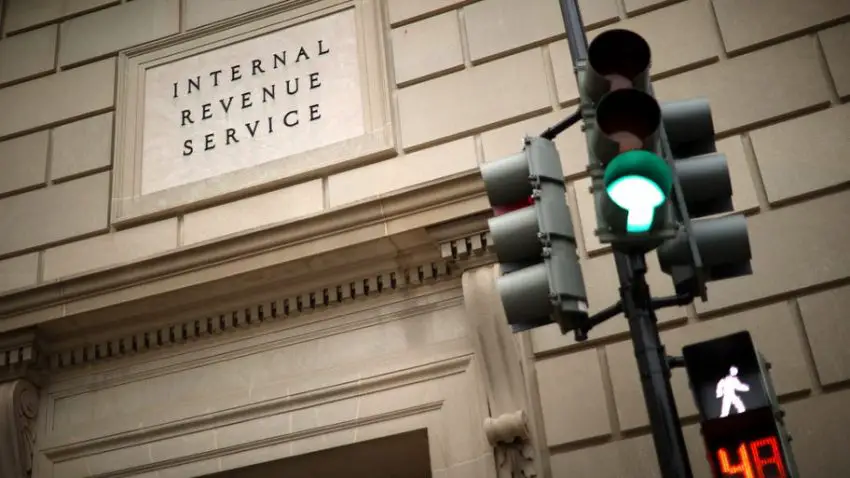Are you wondering how long you should keep your tax records? Wondering if you can tossing last year’s returns in the trash? Or maybe you’re just curious about what kind of documents the IRS requires.
No matter what your question, this blog post is here to help! We’ll go over everything you need to know about recordkeeping for taxes, and give you some tips on how to make the process as easy as possible. Read on to learn more!

Contents
How Long Should I keep my Tax Records?
To start, note that all of your tax returns and supplemental information should be kept for at least three years. Three years is the general baseline that you can use as a measure for how long the IRS can audit you, how long you can refile or amend returns, and the timeframe that you can still adjust your filing and get more money back.
The IRS has a statute of limitations for audits and questioning on tax returns filed by individuals. That period of time is the aforementioned three years.
During that period of time, you might be asked to show your tax records and any other documentation that indicates your earnings or spending. Naturally, that’s a lot of information to keep track of.
The last thing you want to do, however, is to get caught unprepared when the IRS reaches out to you. So, while it’s quite a task to hang onto your financial records, you should really try to do so.
Things to keep track of include but aren’t limited to:
-
W2 forms
-
1099 forms
-
Government assistance records
-
Business receipts
-
Personal receipts (or bank account statements)
-
Invoices
-
Asset documentation (revenue on investments, for example)
-
401k information
We’ll discuss some methods of keeping track of documents a little later.

Individuals With Complex Returns
A lot of people who work for employers don’t have complicated tax forms. You work your allotted hours for the years, you get a W2, and you get some money back on your tax return.
It’s a simple process that typically runs through a tax service and comes out squeaky clean every time. Individuals that freelance or own their own businesses, though, tell a very different tale.
Freelancer Taxes
If you work for yourself in a gig-based capacity, there are a number of things that you have to do to make sure you’re covered. All clients need to file 1099s if they’ve paid you more than $600 over the course of the year.
There are also numerous business expenses to account for. It’s tough to figure out where the line gets drawn in a lot of cases, though. For example, when does your spare room become your home office?
When do gas mileage expenses shift from personal to business-related? Your necessary work materials and all expenses related to work can be write-offs in most cases.
All of these factors leave a lot of room for confusion and, for the individual who would try to cheat on their taxes, room for misreporting. This is something that the IRS knows, and they’re more alert to the returns of individuals with more complex returns.
It’s also the case that self-employed individuals pay the tax of the employer as well as the employee. Even if there’s just one person filing, that person has to pay twice the amount of income tax that non-self-employed people do.
That is all to say that there’s a lot of documentation that these individuals need to keep track of. As we’ll discuss after our next section, that might mean that you freelancers should keep their tax records for a longer period of time.
Business Taxes
Small business owners are in a similar category. Taxes for those who own their own business are a lot more complex than the taxes of those who don’t.
You have business expenses to write off, inventory management, revenue, and the income that you pay yourself. That equation also breeds confusion and the opportunity to misreport your taxes.
Further, there’s a lot of documentation to keep track of.
There’s always a chance that you forget something and omit a section of your income from your returns. Even if you don’t do it knowingly, you’re still getting into dangerous territory. If you do happen to omit something, you want to make sure that you can account for it when the IRS comes knocking.
This goes for freelancers and business owners alike. So, how long should you keep your tax information if you fall into one of these categories?
The IRS Has Six Years
If you’re someone who omits a sizeable percentage of your income from taxes, the IRS has six years to audit and account for the difference. Generally speaking, the amount you omit needs to be equal to or more than 25% of your total income.
This could happen as a mistake, or you might just forget about a client that pays you in cash, for example. In any case, if the IRS notices that discrepancy, they have a longer period of time to confront you about it.
In light of this, it’s smart for businesses and self-employed people to keep their tax records for six years.
Instances When You Should Keep Tax Records for Longer
There are a few situations where you’ll want to keep your tax records for 10 years or longer.
In situations where you deal with capital losses or significant debt from your tax returns, you should keep the documents for seven years. That’s the period of time that the IRS has to check on those returns to see if you’ve paid your fair share of taxes.
Beyond that point, they don’t have the ability to check into those records.
Individuals who pay taxes in the United States as well as a foreign country or have some intermingling of accounts internationally should hang onto documents for 10 years. Those situations can be complex, and there’s a lot of room for error.
If the IRS files a claim against you during that time, which they very well might, it’s helpful to have all of your documents on hand. Just because the government inquires into your taxes, though, doesn’t mean that they’re going to fine or prosecute you.
Just ensure that you have documentation to prove your earnings and taxes for the period of time that your finances were in multiple countries.
Property Ownership and Sale
If you purchase a property, make sure that you keep the tax documentation for the purchase as long as you own the property. Doing so will help you assess and file taxes concerning deductions, capital gains, and amortization when you sell.
After the sale, the three-year statute of limitations applies again.
Knowingly Committing a Crime
Interestingly, the IRS gives a note of advice to people who break the tax code. According to the IRS, the only time you should keep your filings for more than 10 years is if you’ve willingly broken the law or failed to file your taxes.
This isn’t permission to do either one of those things, but it might make it easier to face the music if you have your real documentation.
Managing Your Documents
The beautiful thing about technology is that it can manage your files so that you don’t have to. It’s been more than ten years since digital filing and personal computers were the standards for most individuals.
That means there’s probably a digital record of your taxes for the last ten years in some way or another. From this point on, though, there’s no reason that you can’t manage your documents electronically.
Purchase a scanner or get familiar with your local copy shop. FedEx, Kinkos, and UPS might have options for scanning. Simply scan all documents and email the files to yourself.
Download those files and put them in a folder. Back that folder up into a cloud storage account like Google Drive or iCloud. Once it’s there, there’s a very small chance that you’ll ever lose the information.
Employers and clients might also have access to information from the past as well. The best way to ensure that you have all of your bases covered is to keep a written log of everyone you work with, their phone numbers, and the income that you receive from them.
It’s also worth downloading your bank statements and putting them in storage as well.
Want to Learn More About How to Keep Tax Records?
Hopefully, you’ve got a better idea of the general tax record keeping timeline. There’s more to learn, though, and we’re here to help. Your next step might be to find a certified accountant.
Tax professionals can help with these matters and put you in touch with the appropriate financial planning resources to keep you in good standing. Explore our site for more resources on tax strategies, financial health, and a whole lot more.
Learn More
Are Car Repairs Tax Deductible For Small Businesses? ( A Must Read!!)
How Can Small Businesses Prepare for Tax Deadlines?
How to Do Your Taxes Online in 2022






2 thoughts on “How Long Should I keep my Tax Records?”